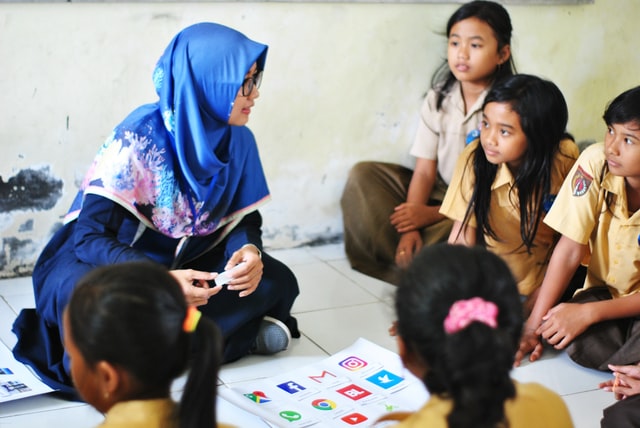Teachers and parents can nurture creativity in children since it’s more of a skill than inborn talent. Creativity has plenty of benefits for kids. It improves a child’s motivation, problem-solving skills, ability to understand complicated things, among others. Children are born with powerful imaginations, and this gives them an instinct for creativity. If this creativity is not nurtured right from childhood, it can wane as they grow older. If you want your kids to be visionary students, you shouldn’t limit them to the classroom walls. Here are a few proven tips you can use to motivate your child to learn. If you apply them correctly, you will help your child discover the joy of learning.

Cultivate A Reading Culture
Many people argue that reading is key to a successful life. In the real sense, we say that reading is the key to success in learning. Any child who develops a love of reading will develop a liking for learning. The vice-versa is also true. Every parent should create a reading culture by preparing children for early learning since these increase their word mastery. Reading plenty of books increases your child’s vocabulary.
Additionally, it also helps their brains to understand concepts and formal communication. Skills gained from reading go far beyond high performance in language and literature classes. Studies show that students who read well also perform exceptionally well in other subjects such as science and math.
Provide Them With Resources
The primary resource here is time. We live in an expeditious world with demanding careers, and sometimes we might lack the time for our kids. Children require plenty of unstructured, child-directed, and fantasy play, which should not be impeded by adult direction. Additionally, children also need plenty of room and space. You can set a specific room where they can make any mess. Some suitable areas include a room in your attic, some space in the garage, or the guest room if it’s rarely used. If you’re looking to buy gifts for your children, buy them technical items like art supplies, building materials, costume items, among others.
Make Them Question Concepts
The best way to reinforce creative thinking in kids is to urge them to think outside the box by asking questions. Anytime you’re spending time with them, ask them random questions like why clouds are white or any creative questions. Why do things fall from the sky? Why do fish live in water and not land? And so on. Explaining these concepts to them will help increase their curiosity. This increases their imaginative skills and helps them with problem-solving skills. With improvements in technology, you can also use virtual assistants like Alexa or Siri, to ask random questions.
Put Your Child In Control
With our formal system of education, what kids experience is being controlled all day. In some cases, if a child feels controlled or out of control in their education, they might withdraw from learning. It will help if you guide your children through the learning process. However, you can allow them to have control of their individual learning experience. Whether they’re in school or at home, it would help if you provide children with the ability to have a say in their learning choices. You can start by providing them with options when you’re assigning projects to them. Additionally, you can also allow them to pick their preferred co curricular activities. The more control you give them, the more they are motivated to learn.
Practice What You Preach
Children learn when they see you doing something since it motivates them to work on their projects. The best advice would be to mentor and coach alongside your children. Children will enjoy working with you compared to taking directives from you without any help. Psychologically, this helps them understand that you’ve invested in what they’re doing and view you as an ally. Additionally, you might also learn something new in the process.
Grow Their Social Skills
Engaging your child in an imaginative role in a play helps them understand real-life roles. Whether they’re acting like themselves, animals, or adults, this triggers their curiosity to learn about vital life skills when dealing with their peers. When they’re actively playing games with other kids, they learn to communicate, cooperate and compromise. It encourages them to get involved in social activities, which grow their social relationships.

As a parent, take time to step back and watch your children playing. You might be surprised by their level of creativity and ability when dealing with some situations. You can also show your knowledge by being creative yourself. Try starting a new creative activity like painting or cooking. If you demonstrate creativity in your life, the more it will seem vital to your child.










